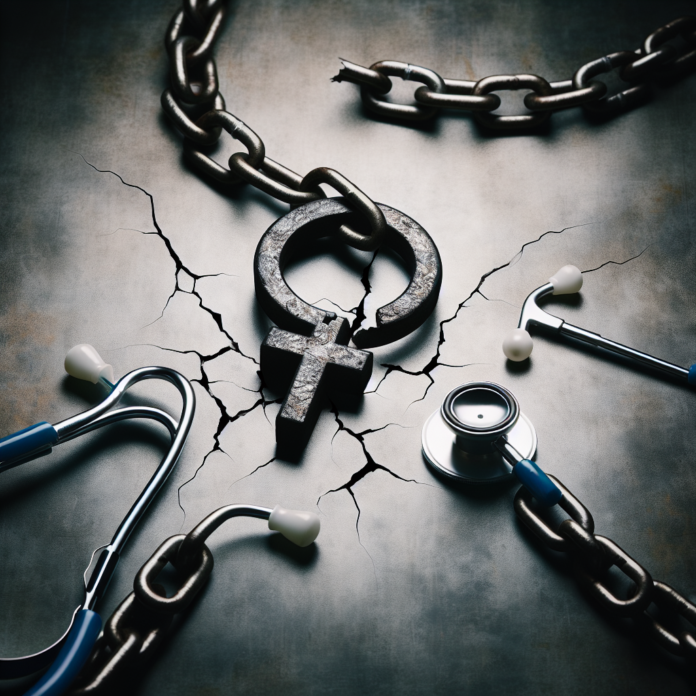Pro-Life Extremism: A Misguided Crusade
Pro-life extremism in the United States has long been a flashpoint in the national conversation on reproductive rights. Rooted in a rigid, traditionalist framework, this movement often cloaks itself in the language of saving lives while masking the significant harm it inflicts on women’s autonomy, health, and overall well-being. Historical context illuminates how this crusade is both misplaced and fundamentally at odds with progress and humanity’s broader ethical compass.
One cannot discuss pro-life extremism without acknowledging its socio-political roots. The movement gained formidable traction in the 1970s, particularly following the landmark Roe v. Wade Supreme Court decision in 1973, which recognized a woman’s constitutional right to choose an abortion. The judgment mobilized a diverse coalition of religious and conservative factions who saw the ruling as a direct affront to their worldview. Notably, Catholic conservatism has played a significant role in shaping the movement’s agenda, drawing from dogmatic beliefs that often clash with modern values of individual freedom and gender equality.
While it is essential to respect religious beliefs, the imposition of these views on a pluralistic society raises significant concerns. Pope John Paul II’s 1995 encyclical, Evangelium Vitae, solidified the Catholic Church’s staunch opposition to abortion, framing it as a non-negotiable moral issue. This unwavering stance has seeped into American politics, especially visible in the rhetoric of conservative lawmakers who strive to legislate these beliefs into secular law. The impact of Catholic conservatism and its allies is undeniably profound, yet it also exposes a stark insensitivity to the complexities of women’s lives and the importance of their autonomy.
Recent headlines highlight the persistent and often radical action taken by pro-life extremists. The overturning of Roe v. Wade in June 2022 epitomized these extremists’ triumph, further polarizing the national dialogue. The Supreme Court’s decision shifted the authority to regulate abortion to individual states, leading to immediate and severe restrictions, or total bans, in numerous states. Such legal changes have precipitated dire consequences for countless women, particularly those from marginalized communities who cannot afford to travel to states where abortion remains legal.
Consider the tragic story of a 10-year-old rape victim in Ohio, unable to access an abortion due to the state’s stringent pro-life laws. This appalling situation forced her to travel out-of-state, becoming a symbol of the cruel and unintended fallout from extreme anti-abortion legislation. This case is not isolated; anecdotal evidence and emerging studies suggest a disturbing trend wherein women are left to navigate dangerous, unsafe alternatives or carry unwanted pregnancies to term against their will.
Contrast this grim scenario with progressive values that prioritize comprehensive sexual education, accessible contraception, and support systems that enable informed and voluntary family planning. Countries embracing these forward-thinking policies—such as the Netherlands and Sweden—boast some of the lowest abortion rates globally. These nations also demonstrate that access and education are far more effective means of reducing unwanted pregnancies than draconian restrictions could ever be.
Moreover, understanding the broader socio-economic impact of banning abortion illuminates the misguided nature of pro-life extremism. Studies consistently reveal that restricting abortion access does not decrease the number of abortions performed but rather increases the incidence of unsafe procedures that jeopardize women’s health. Economist Diana Greene Foster’s widely-regarded research indicates that women denied abortions are more likely to experience economic hardship, remain tethered to abusive relationships, and suffer from long-term mental health issues.
In examining the pro-life movement’s fervor, one cannot ignore the psychological and sociological dimensions underpinning it. The adherence to traditionalism paired with an aversion to progressive values often signifies deeper anxieties about changing social norms. By clinging to rigid frameworks, pro-life extremists inadvertently reveal an inability to adapt to a world where gender roles are fluid, and personal autonomy is paramount.
Furthermore, the pseudo-scientific rhetoric used by pro-life activists serves to obscure the nuanced realities of reproductive health. Terms like "heartbeat bills" exploit emotional tropes to bypass rational discourse, creating a highly charged environment that stifles reasoned debate. By contrast, progressive policies are grounded in scientific evidence and prioritize healthcare standards that benefit the entire population.
In conclusion, pro-life extremism exemplifies a misguided crusade more intent on preserving outdated norms than fostering a society where individual rights and public health are paramount. Historical precedence and contemporary outcomes alike demonstrate the detrimental impacts of these hardline stances, not only on women’s health and autonomy but also on broader societal progress. Aligning with progressive values, underpinned by empirical evidence and compassion, creates a logical pathway towards reducing unwanted pregnancies and protecting the well-being of women and families.
While the debate surrounding reproductive rights is fraught and complex, the evidence clearly supports a progressive framework that prioritizes autonomy, education, and healthcare access over the imposition of archaic and harmful restrictions. The future of reproductive rights necessitates a commitment to progressive values that respect and empower individuals, ensuring a society that is both just and humane.
